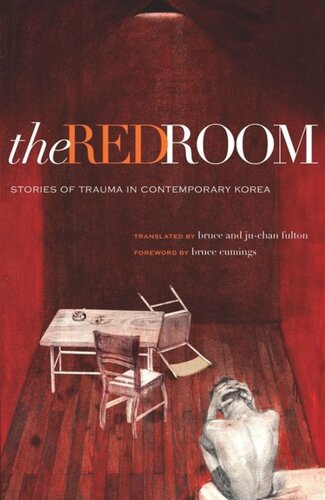

Most ebook files are in PDF format, so you can easily read them using various software such as Foxit Reader or directly on the Google Chrome browser.
Some ebook files are released by publishers in other formats such as .awz, .mobi, .epub, .fb2, etc. You may need to install specific software to read these formats on mobile/PC, such as Calibre.
Please read the tutorial at this link: https://ebookbell.com/faq
We offer FREE conversion to the popular formats you request; however, this may take some time. Therefore, right after payment, please email us, and we will try to provide the service as quickly as possible.
For some exceptional file formats or broken links (if any), please refrain from opening any disputes. Instead, email us first, and we will try to assist within a maximum of 6 hours.
EbookBell Team

4.3
88 reviewsModern Korean fiction is to a large extent a literature of witness to the historic upheavals of twentieth-century Korea. Often inspired by their own experiences, contemporary writers continue to show us how individual Koreans have been traumatized by wartime violence—whether the uprooting of whole families from the ancestral home, life on the road as war refugees, or the violent deaths of loved ones.
The Red Room brings together stories by three canonical Korean writers who examine trauma as a simple fact of life. In Pak Wan-so’s "In the Realm of the Buddha," trauma manifests itself as an undigested lump inside the narrator, a mass needing to be purged before it consumes her. The protagonist of O Chong-hui’s "Spirit on the Wind" suffers from an incomprehensible wanderlust—the result of trauma that has escaped her conscious memory. In the title story by Im Ch’or-u, trauma is recycled from torturer to victim when a teacher is arbitrarily detained by unnamed officials. Western readers may find these stories bleak, even chilling, yet they offer restorative truths when viewed in light of the suffering experienced by all victims of war and political violence regardless of place and time.